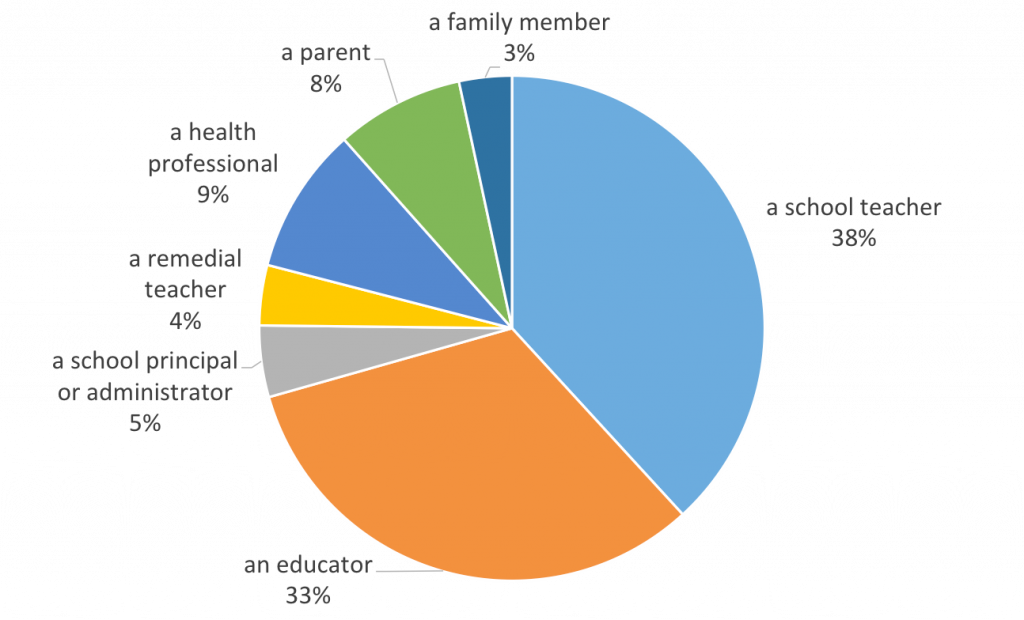In this post Aamirah Sonday talks to Aimee Dollman, Lead Mentor of the What is a Mind? MOOC on supporting learners in massive open online spaces. Enrollment information for What is a Mind? can be found here https://www.futurelearn.com/courses/what-is-a-mind
The lead educator is always the face of the MOOC but behind the scenes there are a myriad of individuals working tirelessly to ensure participants get the most out of the course, not least of these are the mentors.
Mentors are the helpful souls who guide and facilitate discussions on MOOC platforms, they also answer technical questions or flag any problems that may be encountered. In the case of Aimee Dollman, lead mentor on our MOOC What is a Mind?, being a mentor can sometimes be difficult given the number of participants (sometimes up to a couple of thousand) but it is rewarding when learners grasp a concept that they had been struggling with.
She believes that MOOCs are unique in that “you can learn about any topic you want in your own time. You can participate as much as you want or as little as you want but you can actually learn something whether it be for credit or not.” “You are in charge of what you do which I think is pretty brilliant.”
As this MOOC presents material from the relatively new field of neuropsychoanalysis, it is sometimes difficult for participants to grasp the complex terms and this is why having a mentor is very important to What is a Mind?. Furthermore, Aimee and fellow mentors understand that participants come from different time zones and therefore make an effort to be online at different times “to accommodate for people from across the world.”
As a mentor, “it has been really interesting to see the huge variety of people from around the world. There is this common thread whether you live in a remote location in Asia or a major city in Britain – people have the same or similar questions, suffer from the same problems and are wanting to learn more. It’s really nice to see so many learners taking the course. Old and young, sometimes with no background in psychology. It is also great to read about people’s different perspectives and realise that at the same time there’s this collectiveness between people whether a professional or not.”
Aimee believes that participants of What is a Mind? are given the tools to critically think and engage with the material. “It also allows them to see an interdisciplinary perspective. Our question and answer sessions allow participants to ask questions about the topic of the week – even something somewhat off topic – it makes learners really think and also facilitates further discussion.”
For example one question was “what is the difference between thinking and feeling? It is not something we think of everyday but once you delve deeper into these concepts it is really interesting. We also look at what makes us; the brain and the mind together”.
Having mentored four iterations of the course Aimee has realised that “you can’t please everyone.” However, participants find it helpful when provided with extra reading materials and the team have developed “a more dedicated reading list” although this is not without its challenges. “Another difficulty we run into is open access. The MOOC itself is open access but we’ve struggled to find other open access material. So for example, journal articles or books that Professor Solms may suggest are not freely available all the time. That’s what irritates people at times because they want more but we can’t give them access.”
That’s why MOOCs are great, they are “really about bringing open access knowledge to people”.
In Aimee’s experience the best tip she could give anyone participating in a MOOC is, “Don’t worry if you can’t work through the material and keep up with other actively participating learners because we understand that everyone has different schedules – a lot of people apologise for not getting to things or their poor English or poor grammar, many also don’t want to share ideas because they aren’t professionals. Don’t worry about that. If you want to discuss something go for it. It does not matter if you are not a professional. It is important to get everyone’s perspective.”
Commenting on working with Professor Solms Aimee says, “It has been great to work with him as his level of knowledge and enthusiasm for this field, as well as willingness to share this knowledge, is inspiring. And even though he has a rather busy schedule, he makes time to address the weekly questions no matter where he is, and enjoys answering them.”

